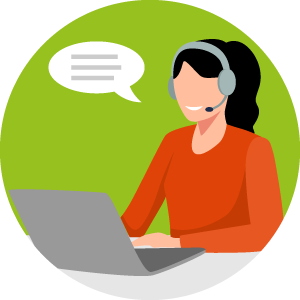
Washington State Quitline
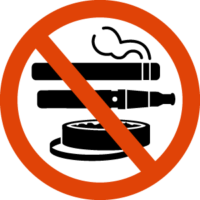
So, what (really) happens when you call the Washington State Quitline?
If you're ready to quit using tobacco products such as cigarettes, vapes, or chew, you might be curious about what that process looks like. You might even have questions about setting a quit day or avoiding temptations and cravings after the fact. All these questions are normal, and the good news is that the Washington State Quitline has been an available resource for tobacco users for the last 20 years.
However, many people are unaware of what happens when they call the Quitline. Some people see the 1-800 number and worry they’ll get a cold and impersonal conversation with an operator. Others might worry about the kind of information they’ll have to share or the type of conversation they’ll have. They may wonder if it will be awkward or whether the Quitline person will understand their situation. Whatever the reason, we want to eliminate some of that stress and offer you insight because we know choosing to quit tobacco is a big deal.
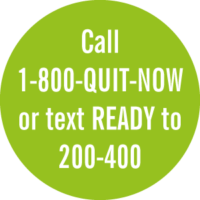
Let’s be clear – anyone can call, text or visit the website
If you are uninsured or underinsured (meaning an insurance plan with no tobacco phone counseling services), you are probably eligible for at least five counseling calls and two weeks of nicotine replacement therapy, such as gum and patches. Whatever your insurance status, anyone can call 1-800-QUIT-NOW, text READY to 200-400, or visit quitline.com.

So, what happens when I call?
When you call the Quitline, the first thing you'll do is talk to an enrollment agent. They'll ask for basic information like your age and gender as well as your current tobacco use. You'll also be asked about the type of devices you use (cigarettes, vape pens, etc.), and your willingness to set a quit date. This part of the calling process is used for statistical reasons only, so you don't need to worry about personal information like your name being released.
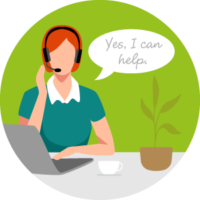
Okay, now what?
Once you talk to an enrollment agent, you'll speak with a quit coach. A quit coach is there to help you on your journey to quit using tobacco products. They'll ask you about your motivation to quit, talk about potential triggers you might have to use tobacco products, discuss ways to manage cravings, and help you determine your strengths as you come up with a plan to avoid smoking, vaping or chewing. They can also help address potential obstacles, like living with people who use tobacco products or facing social pressure.
Remember, the initial conversation with your quit coach is to help you, so there are no scripts or steps the conversation has to follow. The main goal is to discuss questions or concerns you might have and help you create a quit plan.
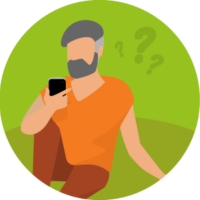
Will I need to set a quit date?
After speaking with your quit coach, you'll have a chance to set a quit date. On this day, you'll stop using tobacco products and start working towards a tobacco-free lifestyle. Now, you might already have a quit day in mind, or you can talk to your quit coach about setting one that works for you. After selecting a quit day, your quit coach will schedule another session with you to maintain momentum and offer support as you work towards your goal.
If you decide not to set a quit date, that's okay. Quitting is never easy and can require multiple attempts for some people, so don’t feel ashamed or worried if it doesn't happen on your first go-around. Your quit coach understands and will re-address your motivation to quit, talk about how a tobacco-free lifestyle can benefit you, and address other concerns you might have about quitting.
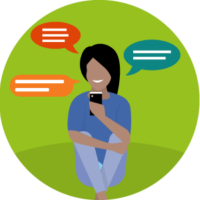
Take it one day at a time:
Remember, everyone's quitting journey is different. No matter how long you've been smoking, whether it’s six months or six years, there are benefits for all tobacco users who choose to quit. In fact, nicotine levels in your blood drop to zero in the first 24 hours. If you're ready to quit, we hope this blog helped ease some of your concerns. If you know someone who's ready to quit, share this blog with them. It may just ease some of their stress and encourage them to call. As always, quit coaches are available 24/7 at 1-800-QUIT-NOW.
